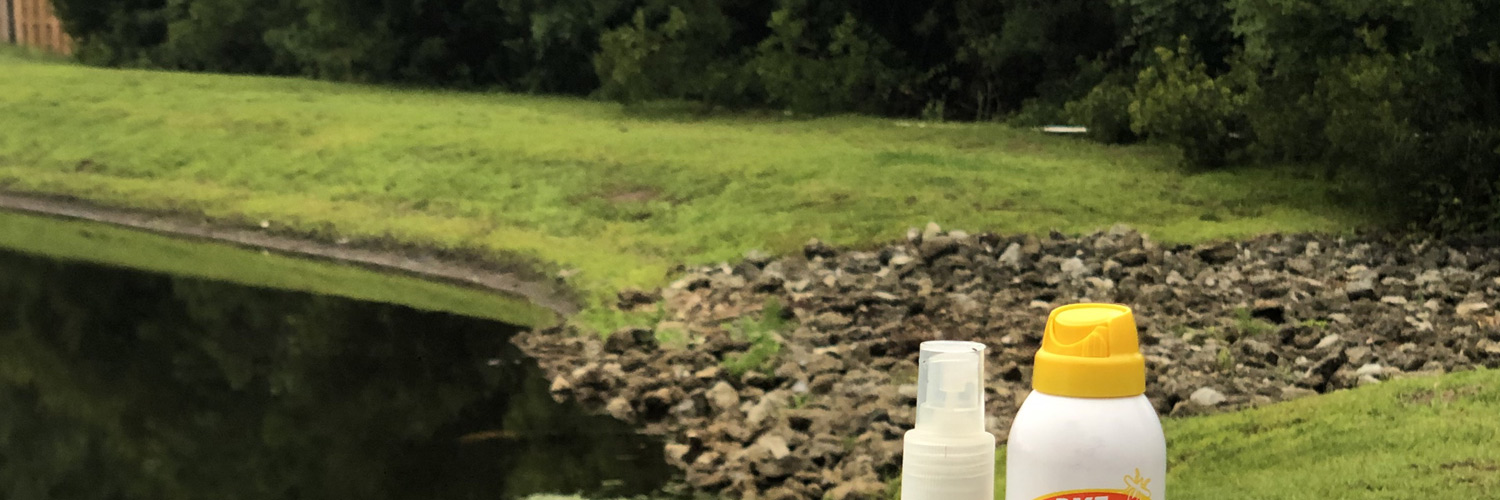Common Mosquito Control Methods Ranked
When it comes to controlling the mosquito population on your property, Michigan homeowners have tried it all. From tiki torches to bug zappers, swatting to spraying, here are the best and worst mosquito control methods ranked for your Michigan home, business, or property.
Swatting 3/10
Swinging and swatting at mosquitoes won’t get you too far in Michigan. While it might give you an arm workout like Tiger’s pitcher, Spencer Turnbull, simply relying on reflexes and hope is not an effective solution. This method does have the benefit of being quick, easy, and rather effective at preventing the largest bites, but definitely not the best solution.
- Pros: Convenient, eco-friendly, always available
- Cons: Energy consuming, violent, needs constant motion
Mosquito Repellent Spray 7/10
One of the most familiar harbingers of a Michigan summer is the smell of bug spray wafting in the breeze. From little league games to campgrounds to your own backyard, mosquito repellent spray is available in a variety of strengths and chemical compositions to be effective no matter how strong (or hungry) the mosquito population is. The most common chemical used in mosquito repellant spray is DEET(N, N-diethyl-3-meta-toluamide), which is available up to 100% strength, however, studies have shown no real added benefit in using a DEET spray with more than 50% strength. In fact, a study published in the New England Journal of Medicine found that a solution of 23.8% DEET provides about 5 hours of protection from mosquitoes.
- Pros: Effective, fast, inexpensive
- Cons: Smelly, needs regular reapplication, can stain clothing
Bug Zappers 2/10
Traditional bug zappers use UV light to attract bugs to their lighted and electrified core. The problem is that this attracts all bugs, not just mosquitoes. According to Leslie Vosshal, a neurobiology professor at the Rockefeller University, “Bug zappers are good for attracting insects that are attracted to bug zappers.” Unfortunately, this often doesn’t include mosquitoes or other biting, nuisance bugs. A study done by the University of Delaware tracked six residential bug zappers over a 10-week period and found that of the nearly 14,000 insects killed, only 0.22% or just 31 insects, were biting flies or mosquitoes. Another study by Notre Dame researchers also found dismal results in which mosquitoes made up less than 7% of insects eliminated over an entire season with a bug zapper. In fact, as the Colorado State Extension put it, “No controlled scientific study has shown that these devices reduce mosquito biting rates outdoors.
- Pros: Non-chemical, one-time cost
- Cons: Kills everything, not very effective for mosquitoes
Tiki Torches 5/10
Tiki torches are a great way to create a festive, party atmosphere in your yard or outdoor space and do offer some protection against mosquitoes. You’ll need to invest in oil that contains citronella or another mosquito-repelling oil to get the protection, but keep in mind, you may need a LOT of torches to offer full protection as these don’t actually eliminate mosquitoes, but rather simply repel them.
- Pros: Moderately effective at close range, create ambiance
- Cons: Not helpful at a distance, need refills often, open fire could be a hazard
Mosquito One Treatment Sprays 9/10
The best way to ensure your property and your family remain protected from the annoyances of mosquitoes is to contact Mosquito One. Our professional mosquito eradication treatments offer protection from mosquitoes, ticks, and fleas and come with a 100% satisfaction guarantee. Treatments do need to be reapplied every four weeks or so to ensure proper coverage, however, you’ll benefit by being able to enjoy your outdoors whenever you want without needing to take another mosquito prevention step.
- Pros: No smell or residue, once a month treatment, incredibly effective
- Cons: More expensive than other options
21919



